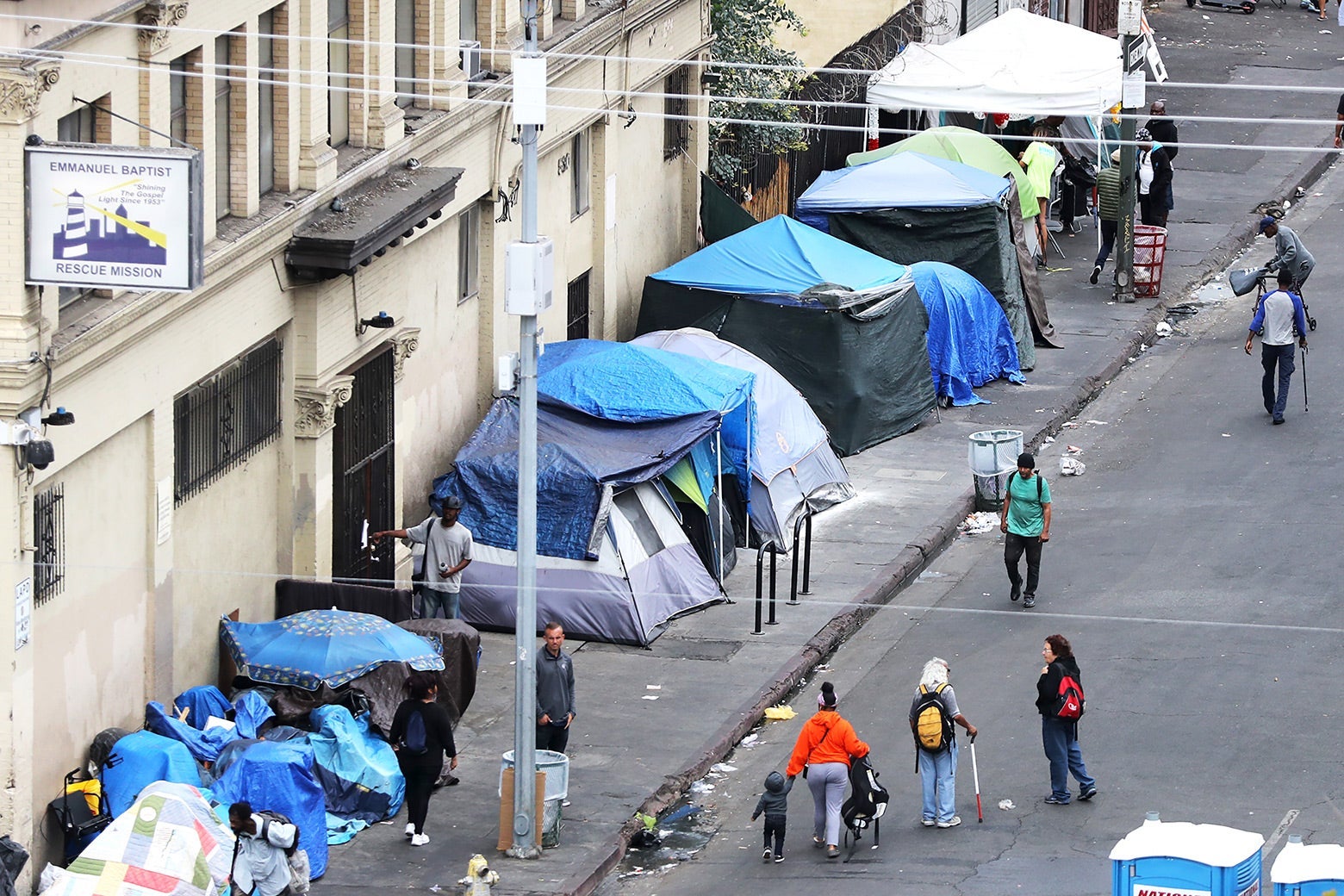The Trump administration is once again testing the limits of truth in government.
In September, President Donald Trump unleashed a barrage of environmental policies and sanctions to punish California for pollution (or for attempting to regulate pollution). He claimed the actions were necessary either because California wasn’t doing enough to regulate pollution or because there was too much regulation of pollution. The attacks on California present the same legal issue that has arisen time and again since Trump became president: Can the administration lie about its reasons for pursuing a given policy? The answer to that question will determine whether this presidency ushers in government by lies—whether administrations can brazenly misrepresent its reasons for pursuing particular policies.
This summer the Supreme Court smacked down the administration’s last attempt to justify a policy with a lie. In Department of Commerce v. New York, the court held that the Trump administration’s addition of a citizenship question to the 2020 census was “pretextual,” meaning that the administration failed to provide the “genuine” reason for adding the question. The administration had argued it wanted to obtain citizenship information in order to better enforce the Voting Rights Act.
At the time, experts recognized that the administration’s justification was bunk. The administration had no commitment to the Voting Rights Act: It had initiated zero suits to enforce the VRA and slashed the budget for the Civil Rights Division within the Department of Justice. It had reversed the previous administration’s positions and argued that various state laws were not in violation of the VRA. No previous VRA litigation had relied on citizenship data collected by the census, and when the Voting Rights Act was enacted, the census did not collect citizenship information. Experts also agreed that adding the citizenship question would depress census response rates, leading to inaccurate information on citizenship.
By a bare majority of 5–4, the court held that the addition of the citizenship question was unlawful because the government had lied about its reasons for adding the citizenship question.
The Trump administration apparently did not get the message. After the census decision, the president announced that he is withdrawing California’s ability to set auto emissions rules stricter than the federal standards; that the Environmental Protection Agency is considering sanctioning California cities for the pollution that purportedly results from the cities’ homeless populations; and that the EPA is considering cutting California’s highway funds because of its air quality. The Department of Justice also announced an antitrust investigation into a compact California signed with several auto dealers in order to generate stricter environmental standards.
None of these policies individually holds up, but collectively the policies reveal just how specious the administration’s justifications are. It cannot be the case that California’s air pollution is so bad that it should lose its highway funds and that California’s air pollution is insufficient to allow the state to adopt more stringent vehicle emissions standards than recently rolled-back federal ones. Likewise, it cannot be the case that California’s air pollution is so bad it deserves an EPA sanction and that California is violating federal antitrust law by attempting to regulate vehicle emissions standards.
No one seriously thinks that the president is enforcing environmental statutes against California because he’s concerned about pollution. His administration repealed the Clean Power Plan, one of the Obama-era policies designed to reduce pollution. He withdrew the United States from the Paris agreement on climate change. He appointed a coal industry lobbyist to head the Environmental Protection Agency. And his EPA has rolled back rules governing offshore drilling and signed executive orders allowing companies to build oil and gas pipelines. The Department of Energy has even tried to rebrand fossil fuels as “molecules of U.S. freedom.”
Moreover, there is plenty of evidence about why the president is targeting California and California cities: because California’s political leaders do not support the president, and because California voters do not either. Indeed, the president’s threats against California are motivated by some of the same reasons that actually motivated the addition of the citizenship question: The administration wants to hurt its political opponents. In the case of California’s supposed pollution, the president wants to saddle the state and its cities with economic burdens. In the case of the census, the administration wanted to depress turnout in traditionally Democratic areas and thereby limit the federal funds they might receive.
There are other plausible administrative law and constitutional challenges to these various policies besides the argument that the administration’s decisions are all pretextual. But recognizing that these policies are pretextual is nonetheless important.
Allowing the government to force through policies that rest on unbelievable justifications could unleash all kinds of arbitrary actions and prejudicial mischief. Consider what else the administration might do if it is legally permitted to lie about the reasons for its policies.
The Trump administration has started to argue (with no evidence) that allowing transgender students to use bathrooms corresponding to their gender identities would harm cisgender students and subject them to sexual harassment. The administration has also modified procedures for asylum applications on the grounds that drugs enter the United States primarily outside ports of entry, even though the opposite is true.
The census decision suggests that the administration cannot justify policies based on lies—including its threat to sanction California for pollution. But the census decision was 5–4, and reporting suggests that the decision almost went the other way. The chief justice apparently cast an initial vote in favor of the administration before changing his mind.
Protections against arbitrary government decision-making are supposed to make ours a government of laws rather than lies. The Trump administration continues to test whether that will remain the case, and we may be closer to government by lies than we would like to think.
